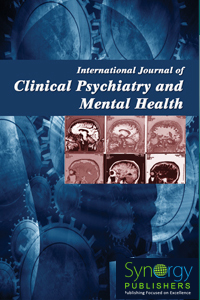
Relationship between Anxiety, Depression, Somatic Complaints, and Age in Children with Autism and Children with ADHD (Pages 35-46)
Susan D. Mayes, Peter Castagna, Raman Baweja, Taranjeet Jolly and Daniel A. Waschbusch
Department of Psychiatry and Behavioral Health, Penn State College of Medicine, USA
DOI: https://doi.org/10.12970/2310-8231.2020.08.07
Download PDFAbstract: No study has analyzed internalizing and somatic symptoms and age in large samples of children with autism and ADHD. Mothers rated 1,436 children with autism and 1,056 with ADHD-Combined or ADHD-Inattentive, 2-17 years of age, on 25 Pediatric Behavior Scale internalizing and somatic symptoms. Generalized and separation anxiety scores were significantly higher in autism than in ADHD-C and ADHD-I, social anxiety was higher in autism than in ADHD-C, and feeling sad and depressed was higher in autism than in ADHD-I. Children with ADHD-C and ADHD-I did not differ from each other, except that sleep disturbance was greater in ADHD-C and social anxiety was greater in ADHD-I. Across age groups, generalized anxiety was often or very often a problem for 49% with autism, 29% with ADHD-C, and 26% with ADHD-I. Corresponding percentages for social anxiety were 32%, 15%, and 24%; separation anxiety 40%, 22%, and 21%; and depressed 22%, 15%, and 9%. No symptoms significantly decreased with age, and in all three diagnostic groups, depression, low self-esteem, and somatic complaints increased with age. Generalized anxiety also increased with age in autism. The frequency of clinically significant anxiety and depression was high in all three diagnostic groups (particularly autism) and was overall higher in the 13-17 year age group than at younger ages, indicating that anxiety and depression may increase with age in ADHD and autism, making early diagnosis and treatment critical.
Keywords: Internalizing symptoms, somatic problems, autism, ADHD. Read more

